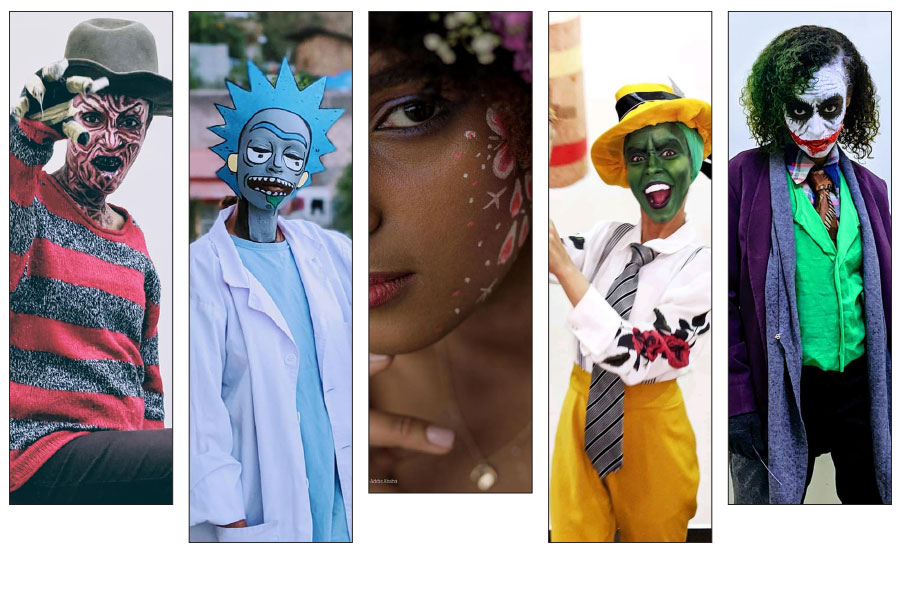
Featured | Oct 06,2024
Feb 17 , 2024
By Eden Sahle
My friend, who is a remarkable woman and once an orphan, is now a symbol of financial and career success. But her deepest aspiration was simple — to build a family and heal the wounds of her childhood. She found love that endured two decades, but a stark difference emerged as her partner could not fathom becoming a parent due to painful past traumas.
The separation was hard for them both. But irreconcilable differences have made it inevitable. Their decision became a canvas for society's assumptions. Some whispered about financial motives that may have played a part, but their success debunked those claims. Others speculated about his quest for a younger partner, but he remained single, nursing a love that lingered.
A couple of years later, they decided to put their past behind them and transitioned into good friends. Unfortunately, lingering hurtful assumptions continued to impact their lives. As she chose in vitro fertilisation (IVF) to become a mother, what followed was a storm of judgment that eclipsed the nuances of their choices. They were forced to retreat from social interactions and bear the weight of others' opinions. Families, too, faced the brunt of scrutiny, compelling them to withdraw from gatherings.
Judgments made without awareness of individuals' circumstances can prove to be incredibly hurtful. Many find it easier than making an effort to comprehend others' actual situations. Minding our own business and watching our words help us steer clear of inflicting unwarranted harm to others. Redirecting the time spent obsessing about others' lives towards self-reflection allows constructive communication.
We engage in a process to make sense of the world around us. Forming an opinion or decision based on available information is an important part. However, it might be tricky sometimes and might lead to grave mistakes. It is essential to critically examine what is upfront to ensure that our judgments are well-founded and fair.
A behaviour observed in a specific situation does not accurately reflect enduring personality traits. External factors should be considered. For instance, perceiving an angry public servant as merely an unfriendly person might overlook the possibility that they are exhausted, overworked, or preoccupied with concerns about a sick family member at home. It could be that the receiver happened to encounter the person on a particularly challenging day for them. Such nuances are often overlooked when opinions are based on limited information.
On the other hand, accepting something influenced by personal beliefs, biases, or limited information may not always be accurate or reliable since they lack a solid foundation in evidence. Judgments can be influenced by assumptions.
A significant aspect of personal development involves recognising how we gauge ourselves and making a conscious choice. We should not let ourselves be defined solely by the metrics of others. Dwelling on the areas where we were scrutinised the most can lead to fixation, hindering our ability to live freely, as what happened to my friends. Had people opted for compassion and understanding, they could have offered comfort instead of making social life unbearable.
In a world where assumptions prevail, a shift towards empathy, understanding, and the liberation of individuals from unwarranted scrutiny is necessary. True societal peace begins when the cycle of judgment is abandoned. Imagine all that could be achieved if people were allowed the freedom to decide their path.
PUBLISHED ON
Feb 17,2024 [ VOL
24 , NO
1242]

Featured | Oct 06,2024

Fortune News | Apr 20,2019

Featured | Jan 07,2023

Sunday with Eden | Aug 10,2024

Viewpoints | Jun 03,2023

Photo Gallery | 177807 Views | May 06,2019

Photo Gallery | 168021 Views | Apr 26,2019

Photo Gallery | 158727 Views | Oct 06,2021

My Opinion | 137013 Views | Aug 14,2021
Commentaries | Oct 25,2025

Dec 22 , 2024 . By TIZITA SHEWAFERAW
Charged with transforming colossal state-owned enterprises into modern and competitiv...

Aug 18 , 2024 . By AKSAH ITALO
Although predictable Yonas Zerihun's job in the ride-hailing service is not immune to...

Jul 28 , 2024 . By TIZITA SHEWAFERAW
Unhabitual, perhaps too many, Samuel Gebreyohannes, 38, used to occasionally enjoy a couple of beers at breakfast. However, he recently swit...

Jul 13 , 2024 . By AKSAH ITALO
Investors who rely on tractors, trucks, and field vehicles for commuting, transporting commodities, and f...

Oct 25 , 2025
The regulatory machinery is on overdrive. In only two years, no fewer than 35 new pro...

Oct 18 , 2025
The political establishment, notably the ruling party and its top brass, has become p...

Oct 11 , 2025
Ladislas Farago, a roving Associated Press (AP) correspondent, arrived in Ethiopia in...

Oct 4 , 2025
Eyob Tekalegn (PhD) had been in the Governor's chair for only weeks when, on Septembe...

Oct 25 , 2025 . By YITBAREK GETACHEW
Officials of the Addis Abeba's Education Bureau have embarked on an ambitious experim...

Oct 26 , 2025 . By YITBAREK GETACHEW
The federal government is making a landmark shift in its investment incentive regime...

Oct 27 , 2025
The National Bank of Ethiopia (NBE) is preparing to issue a directive that will funda...

Oct 26 , 2025 . By SURAFEL MULUGETA
A community of booksellers shadowing the Ethiopian National Theatre has been jolted b...